10 Essential Gardening Tools List: Key Buys For Beginners
Shovel, wheelbarrow, gloves... Every gardener needs a basic set of tools to get growing. Here's a list of our 10 must-haves.

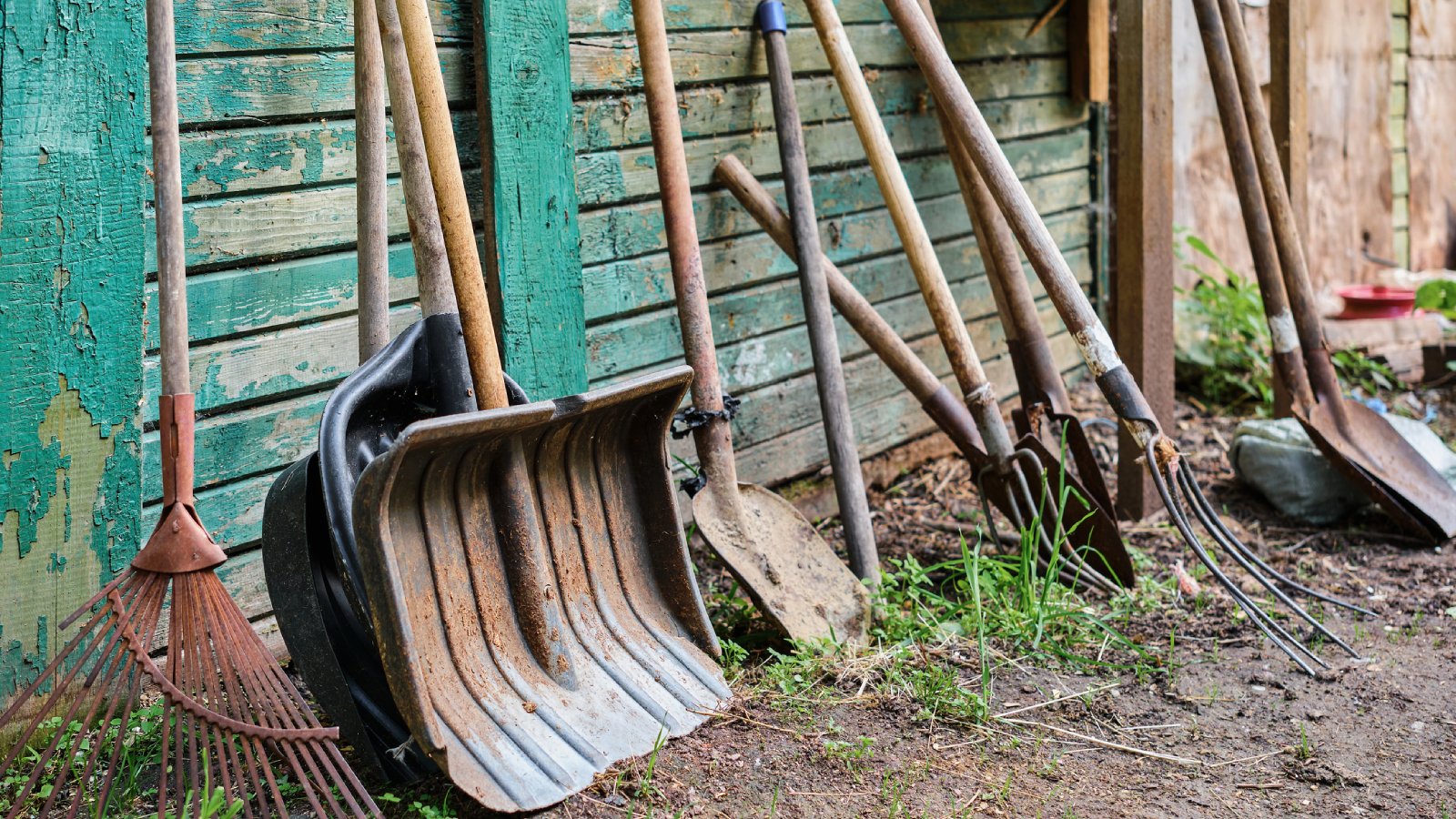
Sign up for the Gardening Know How newsletter today and receive a free copy of our e-book "How to Grow Delicious Tomatoes".
You are now subscribed
Your newsletter sign-up was successful
Calling all gardeners, new and old-timers. Choosing and purchasing gardening tools can be daunting – sometimes you don’t know what you need until you need it. Here’s a detailed guide of garden tools you’ll most likely want to have handy. We’ll discuss which jobs each one performs and why you’ll want them at your fingertips as you begin your gardening journey. Welcome to the beautiful fun of gardening. Let’s see if we can make it easy for you.
You Need These Practical Garden Tools
Selecting the right types of tools for gardening may seem like a simple task, but you will need to consider your size, any special challenges, the task level, the manufacturer, and the materials used. Choosing the right garden tools can spare you a lot of pain and money.
Here are a few of our favorite most basic accouterments to buy, gather or borrow as you begin your gardening adventures.
1. Gloves
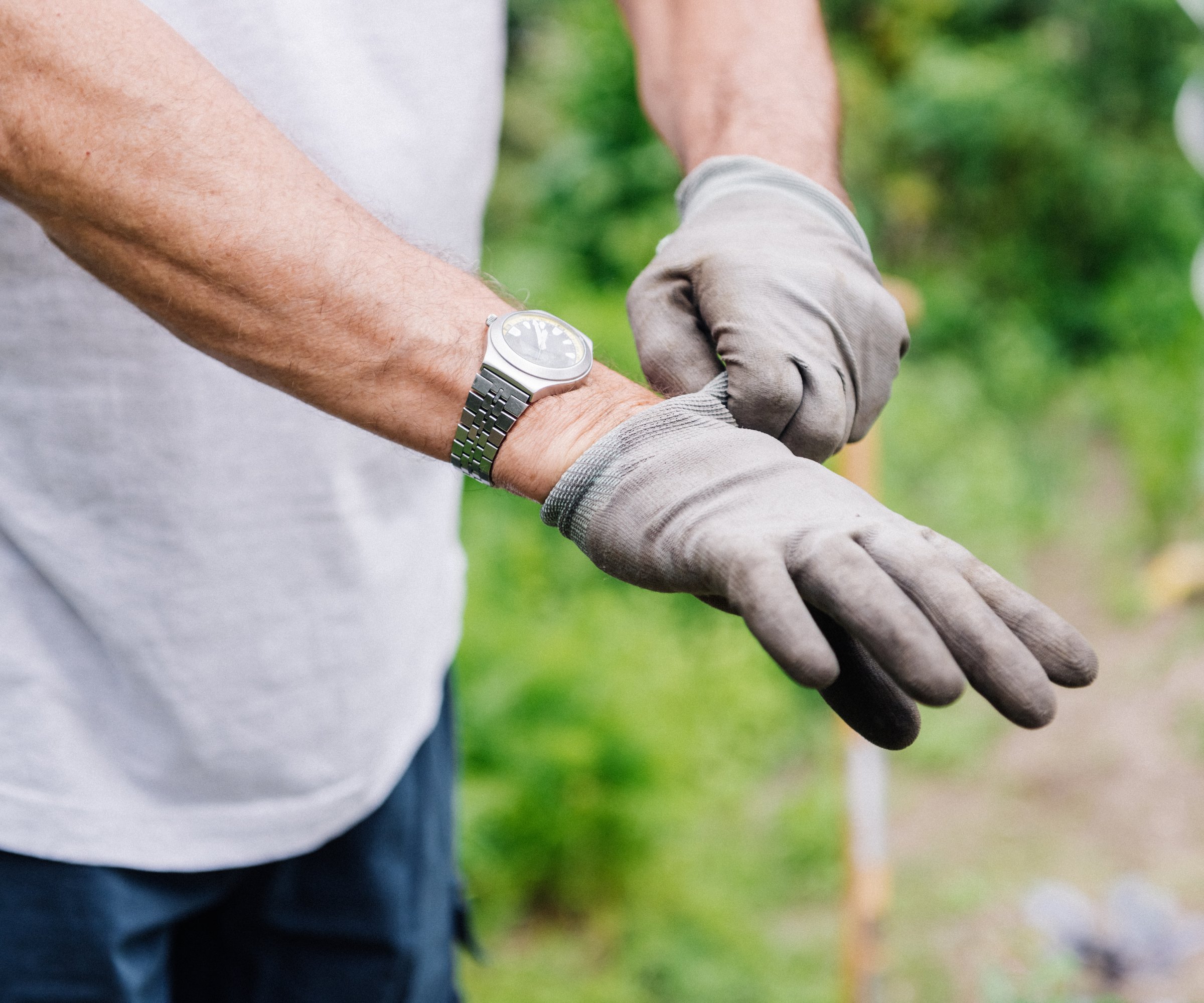
Of course! Protect your hands from the drying effects of soil, sharp edges of tools and thorns and even from too much sun. Gardening gloves are also great for lifting tools and pots and making you look like a seasoned gardener. Get some fine, thin ones for precision plucking, and some hefty ones for bigger jobs or those that involve thorns.
2. Trowel
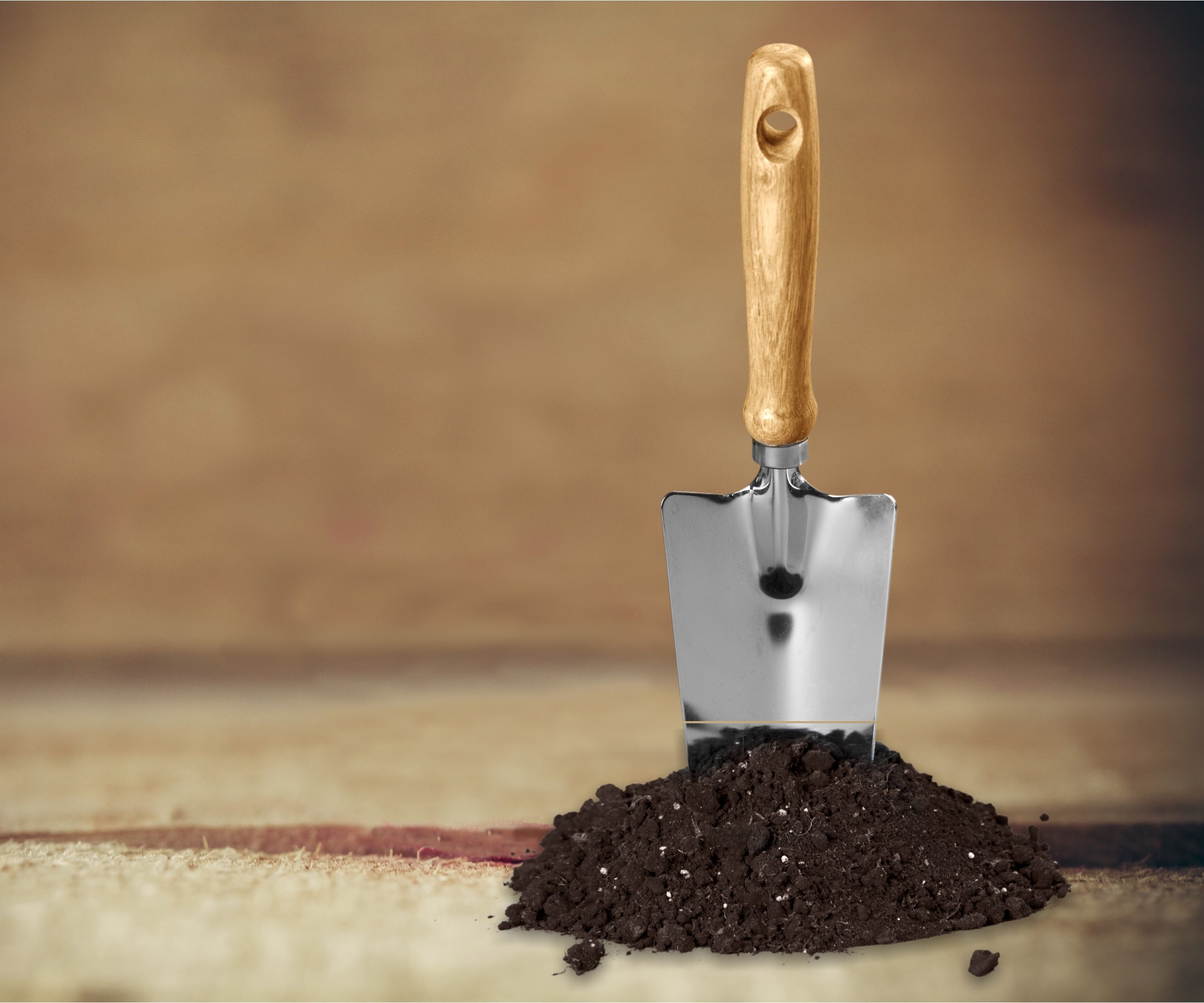
Perhaps the best hand tool in your garden collection is the humble trowel. Simply a smaller hand-held shovel, the trowel wins first prize for the most used tool in my garden box. I use it for lifting soil to install new transplants, leveling soil in my raised beds, making trenches for seed-planting, digging up the occasional weed and loosening soil around plants. Scooping, spreading, moving pebbles, brush, and small areas of mulch are all trowel-jobs in my world. I have pointy, serrated and smooth trowels, and I use them all.
3. Shears
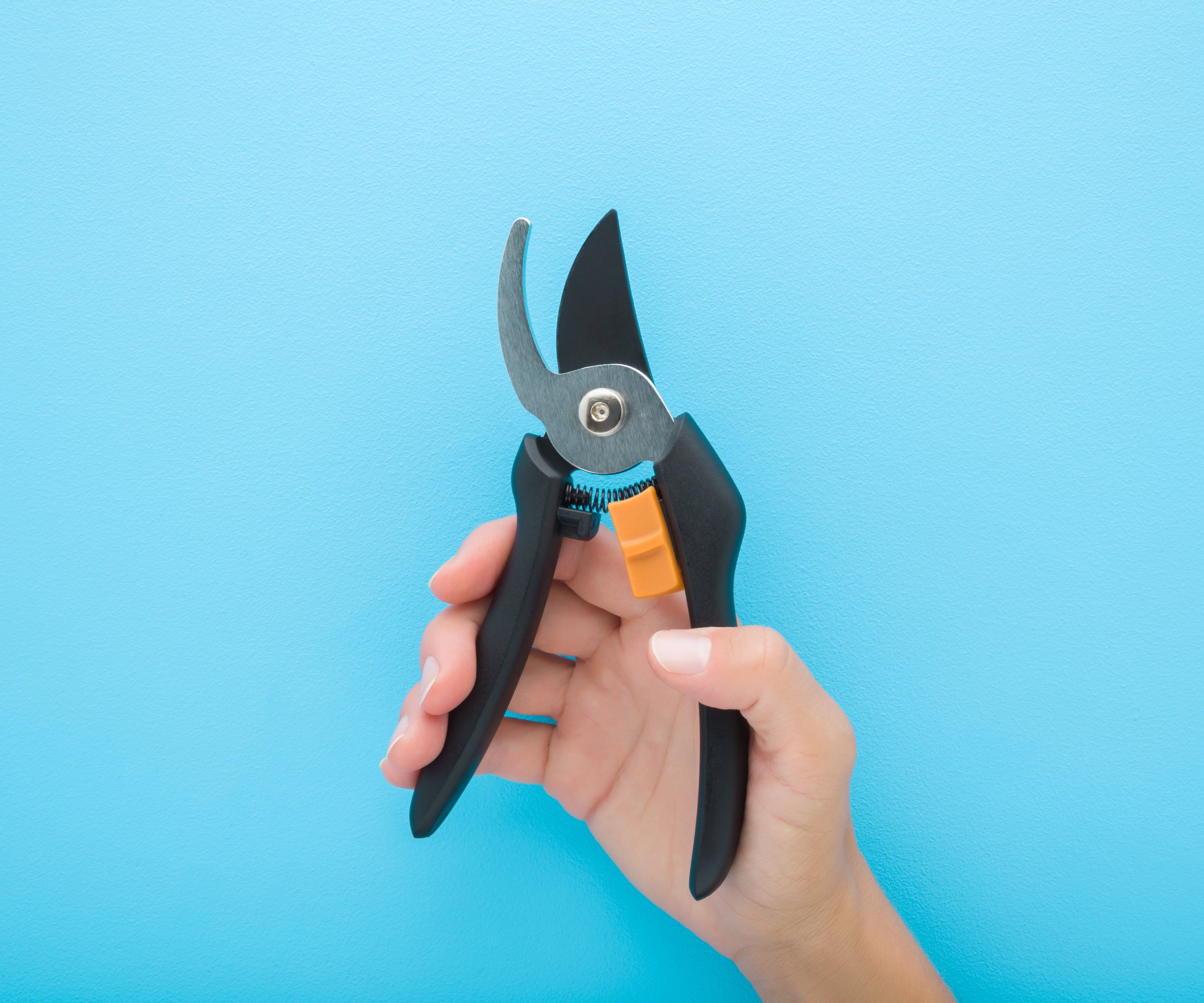
Garden shears come in as a strong second as the most-used in my garden. There are so many types of garden clippers it would be tough to recommend a specific one, but sharp, strong ones go a long way for pruning, clipping, deadheading, harvesting, and various other unexpected tasks. Buy the best brand-name clippers because they’re absolutely worth it.
Plan to sharpen them occasionally. If you’re like me, you’ll want at least a couple different sizes - snipping herbs is so different from pruning azaleas or roses. Basically these are super-scissors, also called secateurs or hand-pruners, you will use them for many gardening purposes. Large pruning shears are nice, too, but unless you’re planning to prune some major shrubs or trees, you may not need the big ones right away.
Sign up for the Gardening Know How newsletter today and receive a free copy of our e-book "How to Grow Delicious Tomatoes".
4. Weeder
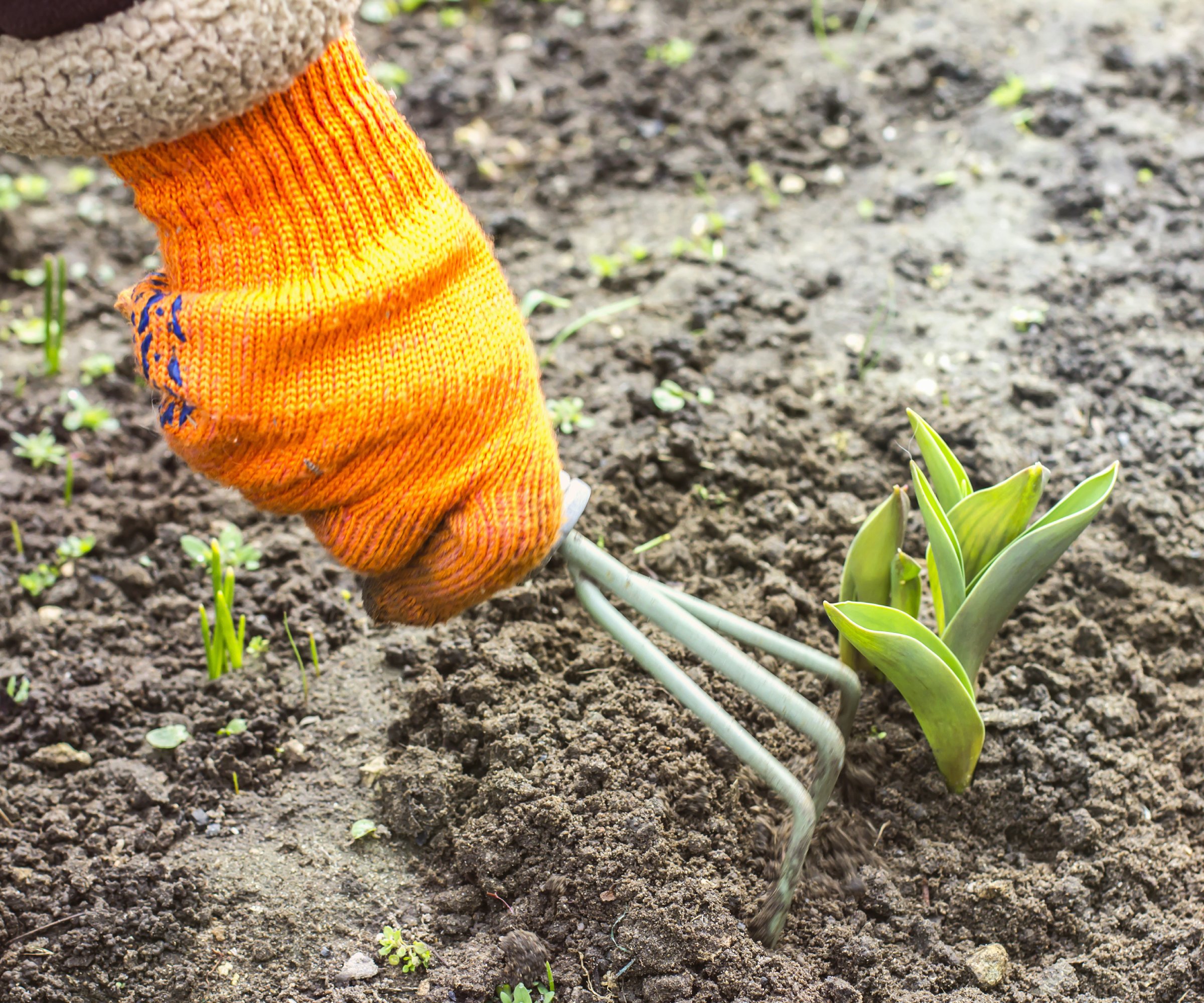
From the sharp-ended hand weeder to the brilliant “grandparent” type, I can’t imagine a well-weeded garden without at least one of these on hand. Gardeners tend to complain about the ongoing labor of weeding, but getting weeds out, root and all, is one of the more satisfying tasks out there.
5. Shovel
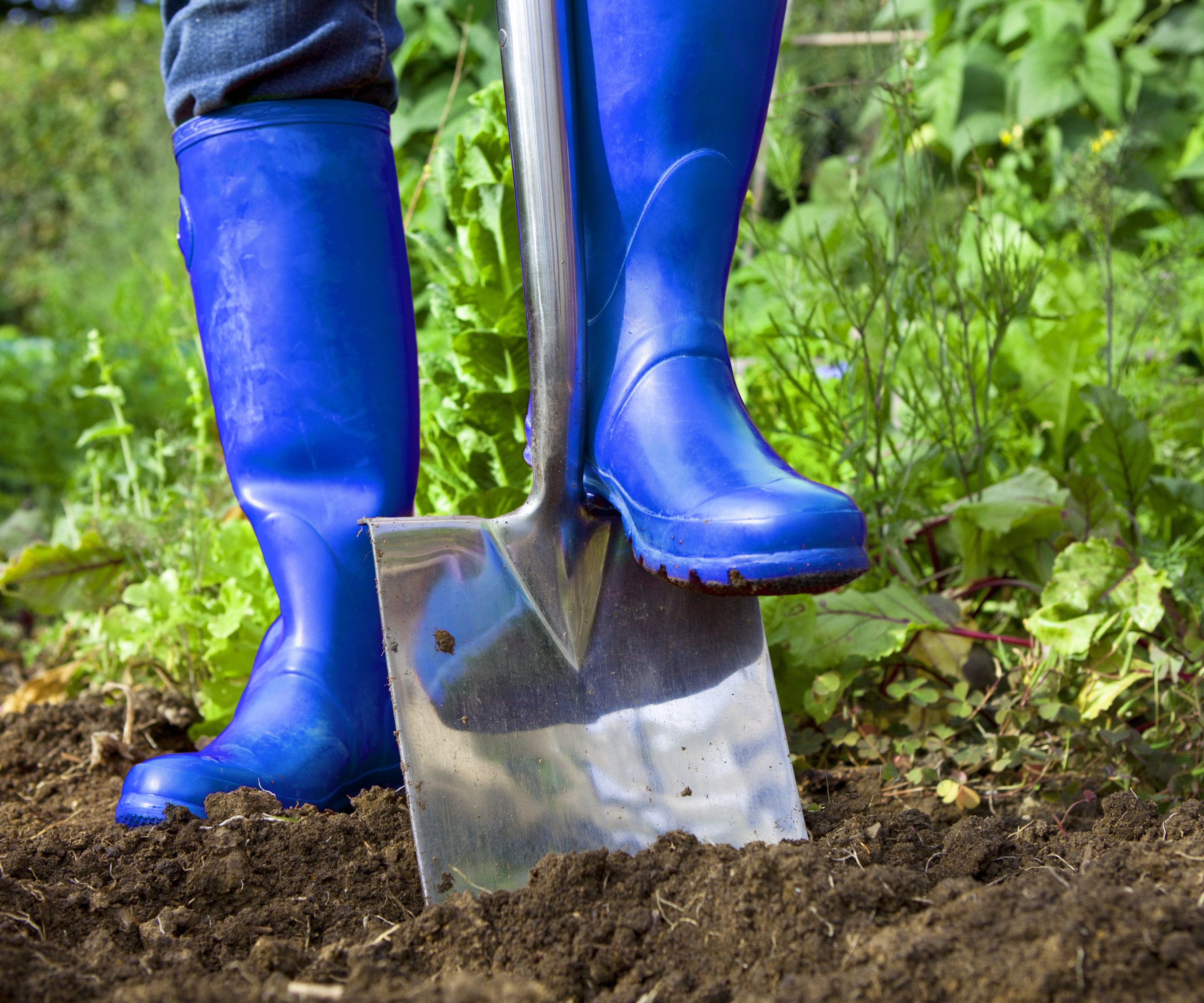
If you plan to dig up a patch of lawn or a stubborn swathe of weeds, you can’t go wrong with a good shovel. Shovels are also great at breaking up clods and preparing holes for new plantings. Get a strong one, but consider the weight of the tool before you buy one for yourself.
6. Garden Fork
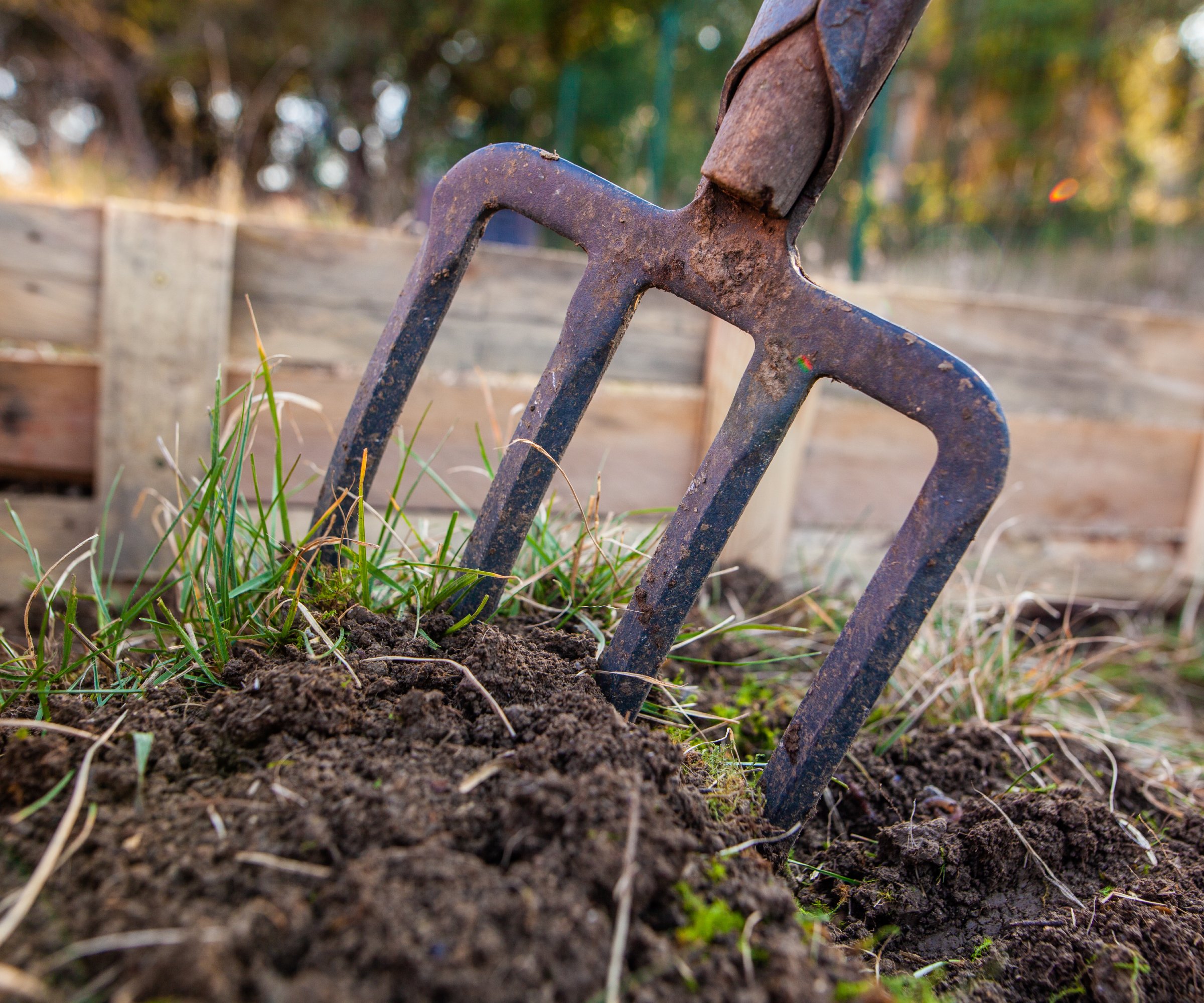
Maybe you won’t need it to start out, but a tall garden fork comes in so handy when you’re turning compost, moving hay and loosening soil. Of course, a hand-held fork is handy, too, when doing smaller tasks. I recommend both, but you might need the smaller one long before the other. Depends on what you’re up to.
7. Wheelbarrow
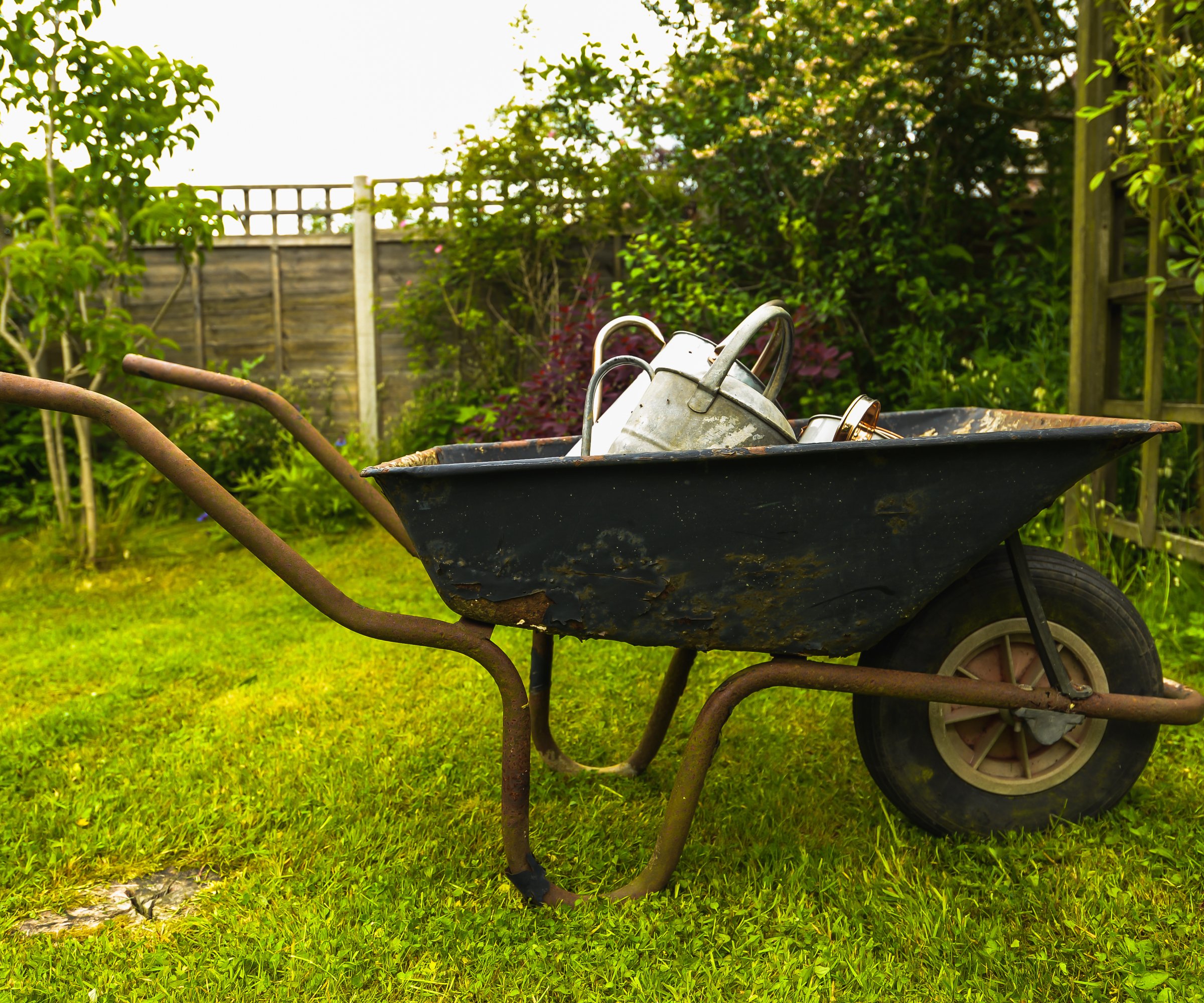
A wheelbarrow can’t really be called a luxury, although that’s how I feel when I use one. Even in a small yard, moving plants, soil, fertilizer, pots, watering cans, tools - everything is made easier with a wheelbarrow. There’s a plethora of sizes and weights and this is something you’ll never ever be sorry you bought.
8. Rake
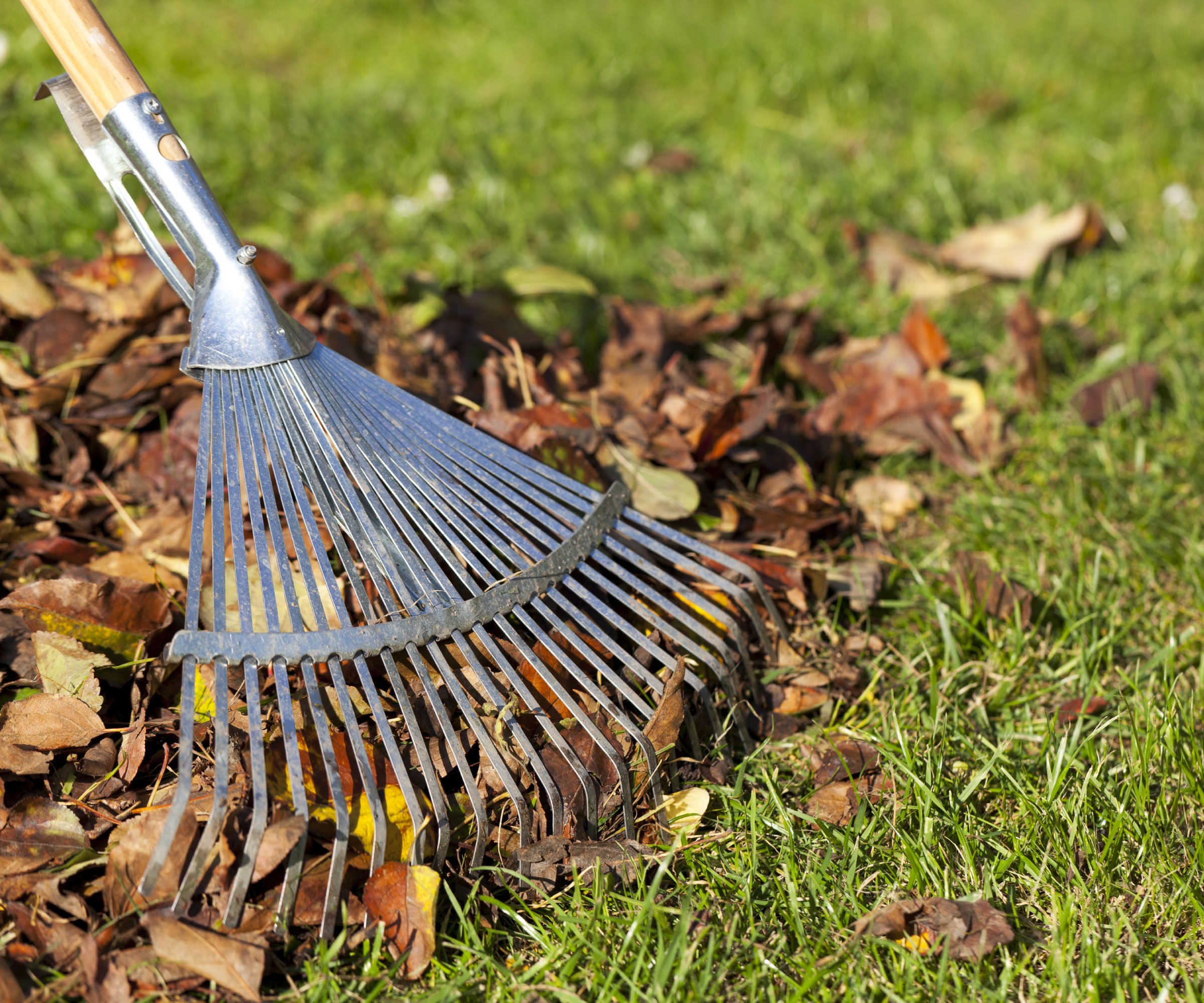
Getting all those dead leaves and detritus out from under shrubs and trees, as well as gathering up leaves and clippings from a lawn to use in compost - a rake is an invention that’s brilliant in its simplicity. Don’t rule out the usefulness of a small rake, either. Grabbing stuff from underneath steps and decks or small planted areas is easier with a more petite rake.
9. Hori Hori Knife
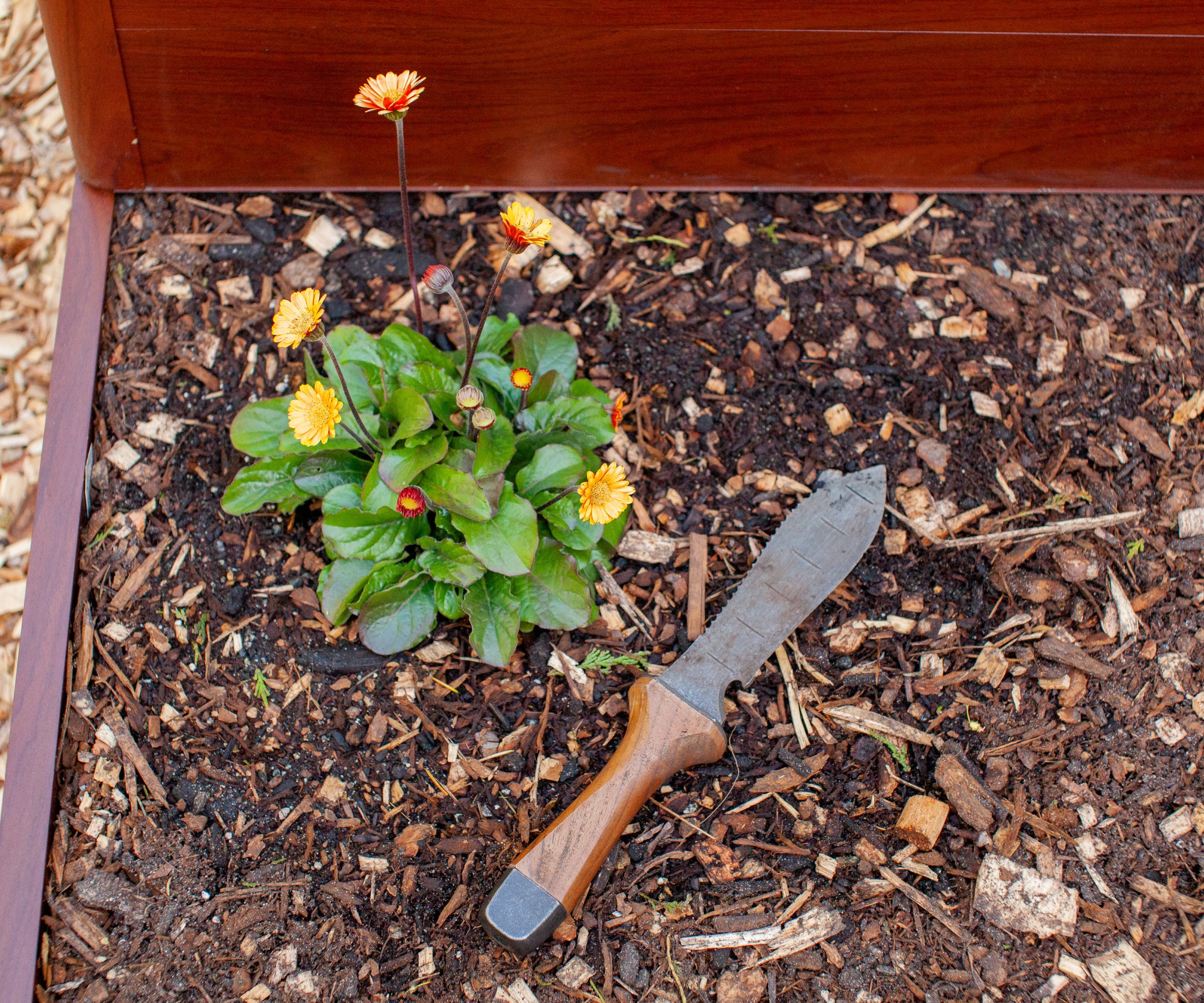
Now, this is an indispensable must-have! We sometimes call this the Swiss army knife of gardening - it digs, cuts, measures and comes in super-handy because it replaces 10 tools in the garden. Dig weeds, cut stems, use 4 different wrench functions, a strong nail puller, and a comprehensive ruler – all included in one tool!
10. Watering Can
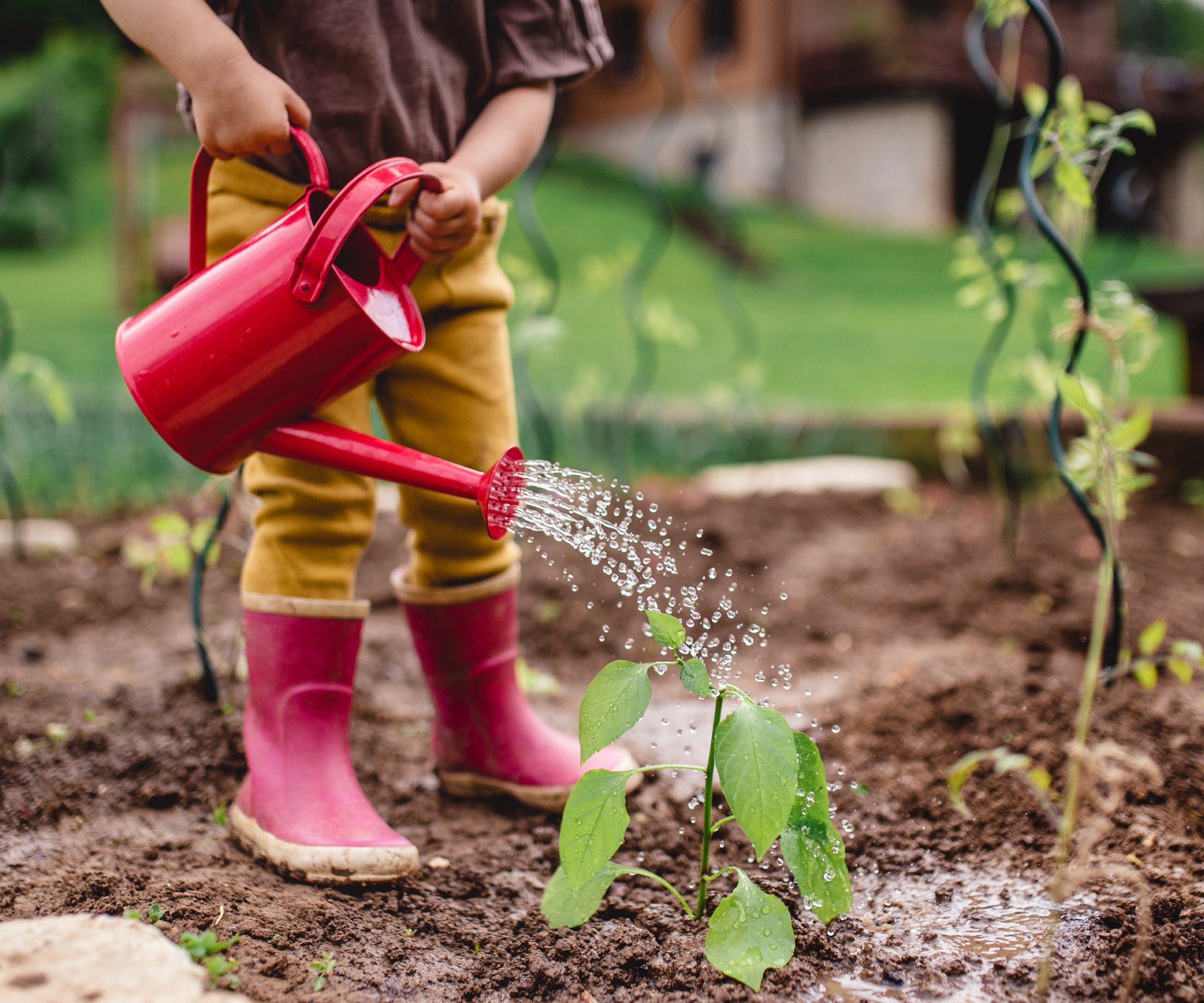
Be sure your planting projects are near a water source that makes it easy to keep them hydrated. Soaker hoses are great for this but in a pinch, a good watering can is a must.
A Word on Quality
I can’t say enough about quality. I was once gifted with a ratcheted clipper purchased online by a well-meaning friend. I was delighted and excited to prune my favorite azalea. However, the clipper handles were too far apart for my hand to hold, and the blades would not separate far enough apart for anything but a small branch (which usually wouldn’t require a ratchet). What seemed like the perfect tool is now in the back of a drawer.
Read reviews and ask your garden center folks for recommendations. You may pay a bit more, but good stuff lasts much longer and is designed for more comfortable use.
Other Must-Haves
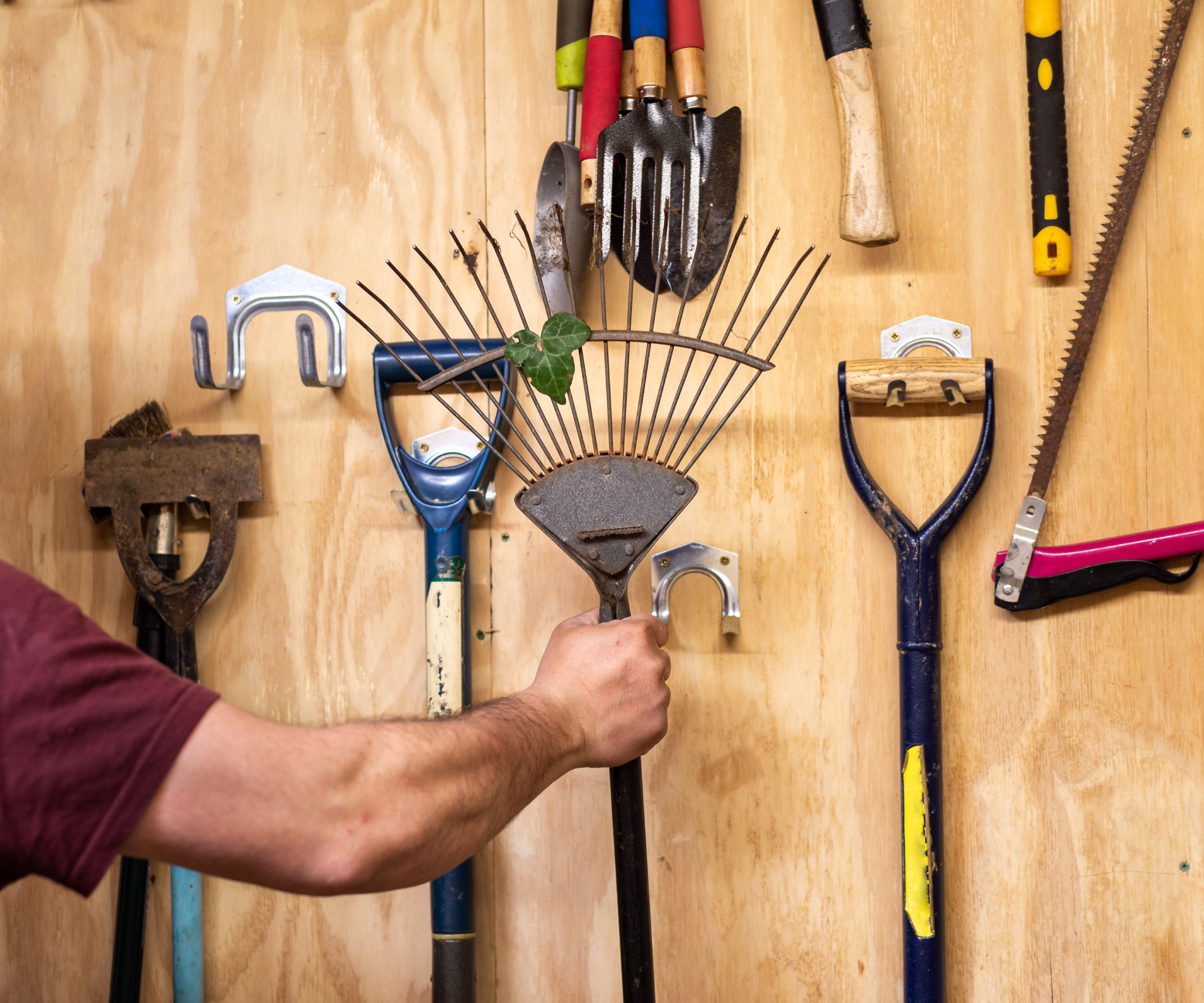
- A good apron is great for protecting you from splashes of mud and dirt, and even better if it has pockets for hand tools and a washcloth.
- A sun hat is essential to protect your scalp. Whether you have hair or not, the sun can really do a number on your scalp’s tender skin.
- Sun block is a must.
- Tool belts make it easier to keep track of your tools, and you’ll save steps when you’ve misplaced them. It happens.
- Scrubby hand soap and a good moisturizer can be a lifesaver after a busy garden day.
Storing and Caring For Your Garden Things
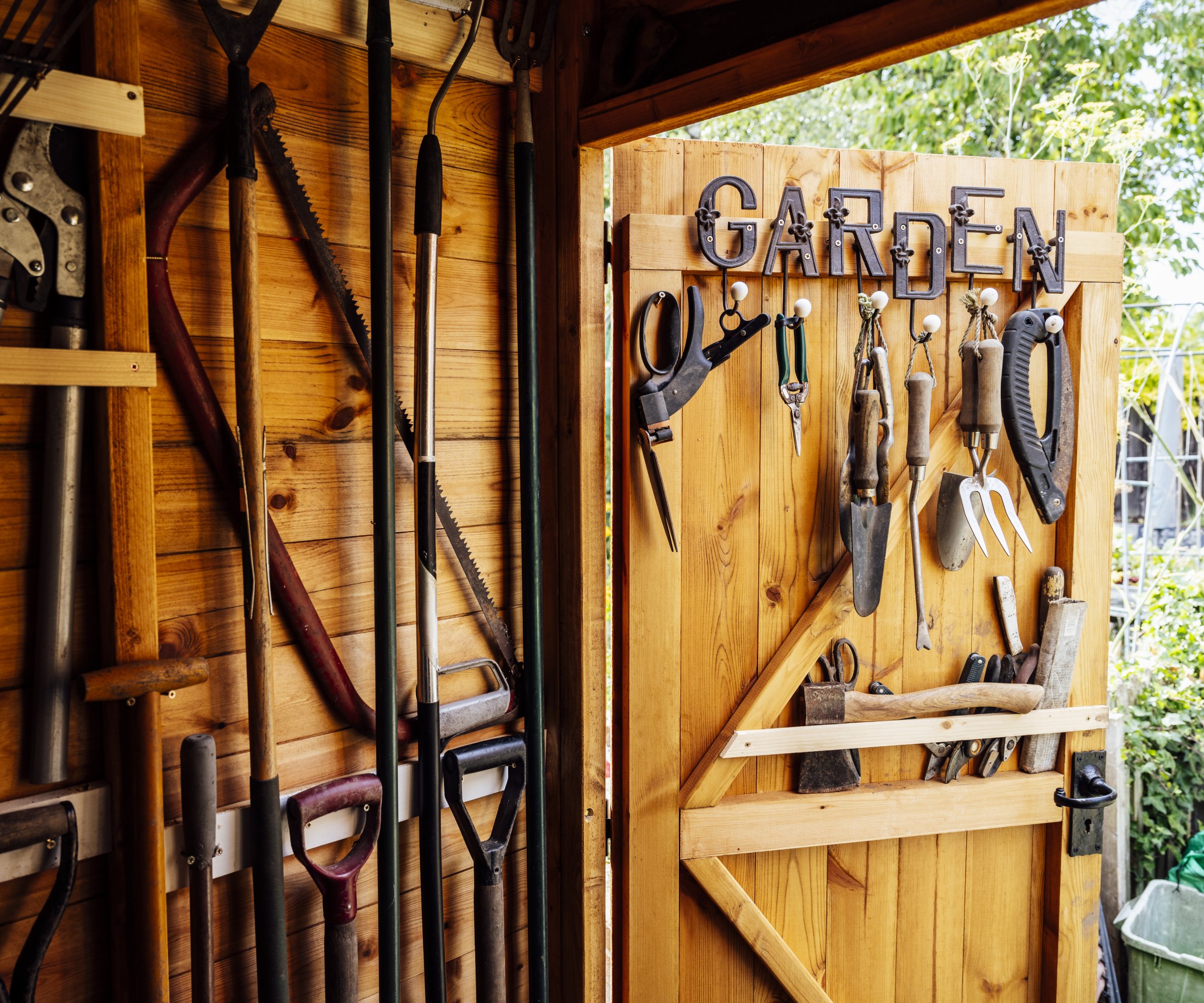
Don’t learn this the hard way. Your tools pick up different kinds of fungi, pathogens, viruses, and bacteria that you will transfer to other plants if you don’t keep them clean. For large tools, dip them in a bucket with 9 parts water to one part bleach, rinse, and dry thoroughly. This method works for smaller tools as well, but you can also wipe them with rubbing alcohol.
When storing tools and pots for the winter, be sure they’re clean and dry, or plan to clean them before putting them back to work in the spring.

Caroline Bloomfield is Manager of Marketing Communications at Gardening Know How since 2019. A northwest native, she has resided and gardened in multiple zones in the U.S. and is currently at home in Bandon, Oregon. Writing and editing for various publications since 1998, her BA in American Studies from Southern Maine University includes an emphasis in English. She was raised in California by avid gardeners and continues to enjoy the natural world with an appreciation for the concepts of sustainability and organic care for the planet.